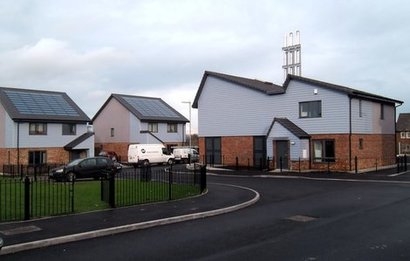
The Department for Business, Energy & Industrial Strategy (BEIS) is aiming to improve home energy performance through mortgage lenders and is therefore currently reviewing proposals for lenders to take responsibility for achieving an average EPC Band C, within their own portfolios. Under the proposals, lenders will need to publicly disclose the Energy Performance Certificates (EPC) of their mortgaged portfolios and commit to a target of an average EPC band C by 2030. At a national level this requires an increase of a further 4.3 SAP points in just nine years, doubling the current annual rate of improvement and requiring an investment of some £48.3 billion
Currently, 60 percent of UK households have an EPC band D rating or below, which rates a home's performance in terms of energy use per square metre, energy efficiency based on fuel costs, and environmental impact. This is threatening the government’s commitment to bring all greenhouse gas emissions to net zero by 2050, with household emissions accounting for 22 percent of the UK’s total greenhouse gas emissions.
Energy efficiency improvements ranging from wall cavities to solar heating panels require an upfront investment that can take years to recoup. By averaging the costs of improvements proposed by the EPC register, geo-spatial technology company Kamma has calculated that raising the average for England & Wales up by just 1 SAP point would cost £11.2 billion. Raising the national average to Band C (69 SAP points) requires a 4.3-points improvement, bringing the total cost of investment to £48.3 billion.
EPC data has been made ‘open’ and freely available but integrating this data with lender portfolio data is technically challenging. Disclosing portfolio-wide EPC performance means reconciling and matching the exact property and delivering accurate information at scale. Without a clear view on current portfolio performance, it could prove impossible for lenders to improve it.
“Progress in improving the energy efficiency of housing has been slow to date, with the national average increasing by just 2.9 SAP points in twelve years” said Kamma CEO, Orla Shields. “With much at stake in the fight against climate change, there needs to be more transparency on the pace of improvement and more clarity as to the costs involved. With a growing market for green finance products, deploying lenders to the front line could provide the impetus for change that we really need.”
Andrew Knight, Head of Thought Leadership & Partnerships at the Royal Institute of Chartered Surveyors, added that the ability to connect data sets from multiple sources will be key in driving improved energy performance for individual properties and in supporting lenders and policy makers analyse at both portfolio and national levels. Data on residential property is currently highly fragmented and unstructured and geo-spatial technology has the potential to support a variety of use cases such conveyancing, rental and fire safety in addition to sustainability in all its forms.
For additional information:

